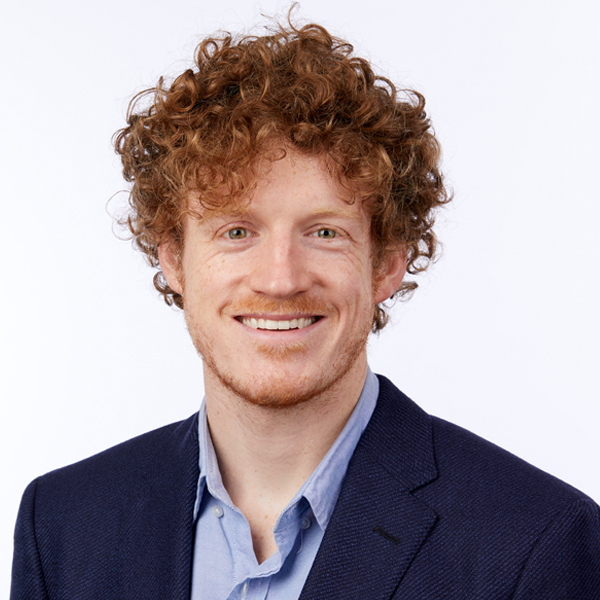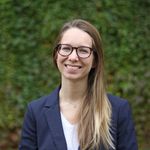Fall 2019 Seminar Schedule.
Join us every Friday (during the semester) from 12:45-1:45 pm in BUSM (L-311, BU Medical School) unless otherwise indicated.
Fall 2019 Schedule Summary |
||
| Date | Speaker | Seminar Titles/Topics |
| Sep 6th | Kate Connolly and Alexa Friedman
PhD Candidates Department of Environmental Health BUSPH |
“Introduction to Policy Formulation Advanced by Science: The Ongoing Case of Per- and Polyfluoroalkyl Substances (PFAS)” – Introduction to Seminar Series |
| Sep 13th | Laurene Allen, MSW
Director of Merrimack Citizens for Clean Water Community membership liaison for the National PFAS Contamination Coalition |
“Making the Invisible Visible: One Community’s Story of Activism after PFAS Contamination” |
| Sep 20th | CANCELLED | |
| Sep 27th | Chad Milando, PhD
and Koen Tieskens, PhD Postdoctoral Research Associates Department of Environmental Health BUSPH |
“Synthetic Population Generation in Chelsea and Dorchester“
and “Simulating the effects of deep energy retrofits in public housing on pediatric asthma exacerbation” |
| Oct 4th | Elsie Sunderland, PhD
Gordon McKay Professor of Environmental Chemistry Harvard John A. Paulson School of Engineering and Applied Sciences |
“Pathways for human exposure to poly- and perfluroalkyl substances (PFAS) and timescales associated with mitigation actions” |
| Oct 11th | Angela Slitt, PhD
Professor Biomedical Sciences College of Pharmacy The University of Rhode Island |
“Evaluating Fatty Liver Effects of PFASs and PFAS Replacements” |
| Oct 18th | Christopher Higgins, PhD
Professor Civil and Environmental Engineering Colorado School of Mines |
“Precursors in Drinking Water? The Potential Role of Perfluoroalkyl Acid Precursors at AFFF-impacted Sites” |
| Oct 25th | Megan Romano, PhD
Assistant Professor Department of Epidemiology Dartmouth Geisel School of Medicine |
“Gestational Exposure to Highly Fluorinated Chemicals: Influences on Physical Growth, Thyroid Hormones, and Neurodevelopment” |
| Nov 1st | Thomas Webster, DSc
Professor Department of Environmental Health BUSPH |
“PFAS Exposure and Health Effects” |
| Nov 8th | Wendy Heiger-Bernays, PhD
Clinical Professor Department of Environmental Health BUSPH |
“Translating the Science: Status and Challenges of Risk-Based Decision Making for PFAS Chemicals” |
| Nov 15th | Paige Brochu and Jennifer Oliver
PhD Candidates Department of Environmental Health BUSPH |
“Understanding the Direct and Indirect Pathways of Greenness on Health in Cities: Current State of the Literature and Future Research Directions”
and TBD |
| Nov 22nd | Scott Burchiel, PhD
Distinguished Emeritus Professor and Working Retiree University of New Mexico College of Pharmacy and Metals Superfund Center |
“Assessment of Immunotoxicity following PAH and Arsenic Exposures in Human Cohorts: Complexities of Exposures and Outcomes” |
| Nov 29th | Fall Break – No Seminar | |
| Dec 6th | Bethany Haley and Alexa Friedman
PhD Candidates Department of Environmental Health BUSPH |
Is Downstream Treatment Enough? Exploring Potential Exposure to Combined Sewer Discharge in the Merrimack River
and Characterizing Exposure to Manganese in Drinking Water |
| Dec 13th | Erica Walker, ScD
Postdoctoral Research Associate Department of Environmental Health BUSPH |
TBA |
EH Seminar Series: Policy Formulation Advanced by Science: The Ongoing Case of Per- and Polyfluoroalkyl Substances (PFAS)
Fall 2019
Time: Fridays 12:45 – 1:45
Location: Room 311, BU Medical School Instructional Building
Per- and polyfluoroalkyl substances (PFAS) are synthetic chemicals that are celebrated for their grease- and water-repellent properties. Sources of exposure to PFAS include food, drinking water, air, and commercial household products, and their tendency to persist in the environment and in the human body has secured PFASs the alias of “forever chemicals”. The negative health and environmental effects of these chemicals and their presence in nearly all people worldwide have placed PFAS at the center of intense investigation and regulatory concern. Despite ubiquitous exposure, PFAS are not regulated in the United States. However, after mounting scientific and public pressure, manufacturers voluntarily phased out the production of two of theses chemicals, PFOS (2002) and PFOA (2015), but replacements and precursors still comprise a class of least 4,700 PFAS chemicals in commerce – most with no toxicological data. Scientists, communities, non-governmental organizations, industry and policy/decision-makers play key roles in this high stakes situation. This seminar series explores the interactions of these players through: summarizing the state of the science on PFAS; examining communities’ concerns, challenges, and successes in addressing PFAS contamination; and assessing current policies targeting PFAS at federal, state, and local levels. Using PFAS as a timely example, the series illustrates nuances to the relationships between scientists, community members, and regulators who are interested in understanding and preventing hazardous exposures.
September 6
Speakers: Kate Connolly and Alexa Friedman
PhD Candidates
Department of Environmental Health
BUSPH
Title: Introduction to Policy Formulation Advanced by Science: The Ongoing Case of Per- and Polyfluoroalkyl Substances (PFAS)
Speaker: Laurene Allen, MSW
Director of Merrimack Citizens for Clean Water
Community membership liaison for the National PFAS Contamination Coalition
Title: Making the Invisible Visible: One Community’s Story of Activism after PFAS Contamination
Summary: This talk will focus on the Merrimack, NH area PFAS impact story and the journey of citizen activism related to the needs of a chemically exposed community. Experiences to be discussed include challenges, lessons learned, accomplishments, and the ongoing work of our community group, Merrimack Citizens for Clean Water.
September 20 – CANCELLED
Speaker: Chad Milando, PhD
Postdoctoral Researcher
Department of Environmental Health
BUSPH
Title: Synthetic Population Generation in Chelsea and Dorchester
Summary: As part of work for Center for Research on Environmental and Social Stressors in Housing Across the Life Course (CRESSH), synthetic populations of Boston neighborhoods (e.g., Chelsea and Dorchester) were generated by resampling from individual-level Census data. This seminar examines how these synthetic data can be used along with epidemiological models to model the impact of changes to modifiable exposures (e.g., greenness, walkability, outdoor PM2.5) on relevant health outcomes (e.g., birthweight).
and
Speaker: Koen Tieskens, PhD
Postdoctoral Researcher
Department of Environmental Health
BUSPH
Title: Simulating the effects of deep energy retrofits in public housing on pediatric asthma exacerbation
Summary: This seminar describes the combining of indoor air quality modeling with discrete event modeling to test the effects of different retrofits in affordable housing on pediatric asthma exacerbation.
October 4
Speaker: Elsie Sunderland, PhD
Gordon McKay Professor of Environmental Chemistry
Harvard John A. Paulson School of Engineering and Applied Sciences
Title: Pathways for human exposure to poly- and perfluroalkyl substances (PFAS) and timescales associated with mitigation actions
Summary: Exposure to poly- and perfluroalkyl substances has been associated with a broad suite of negative health outcomes. Mitigating exposure risks first requires understanding the relative importance of different exposure pathways for various demographic groups. However, new potential PFAS exposure sources (e.g., bottled water, food packing and biosolids) seem to emerge every day. This presentation will highlight some recent work studying the PFAS exposure pathways through drinking water and seafood and estimates of the relative significance of these known pathways for overall exposure levels measured in serum. Timescales for mitigation actions to reduce exposures will also be discussed as well as the importance of total fluorine mass budgets for accounting for diverse new PFAS sources that are difficult to detect analytically.
October 11
Speaker: Angela Slitt, PhD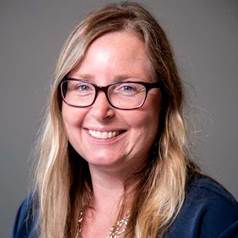
Professor
Biomedical Sciences
College of Pharmacy, the University of Rhode Island
Title: Evaluating Fatty Liver Effects of PFASs and PFAS Replacements
Summary: Dr. Slitt will present findings regarding the evaluation of PFAS exposure with a focus on fatty liver effects. She will present findings for not only PFASs that have been removed from the market, such as PFOA and PFOS, but also replacement and emerging PFASs in cell-based models and also rodent models.
Bio: Angela Slitt is an associate professor in the Department of Biomedical Sciences in the College of Pharmacy at the University of Rhode Island. She has twenty years’ experience as a toxicologist, specializing in mechanisms of liver injury and biliary excretion/transport, with numerous full-length publications in the area of toxicology. Her research program also includes the study of non-alcoholic fatty liver disease (NAFLD) and metabolic disorders, hepatic transport processes, and toxicant excretion, and evaluation of plant and food-derived polyphenolic compounds for anti-inflammatory activity. Her work has been published in journals, such as Diabetes, Antioxidants and Redox Signaling, Free Radicals Biology and Medicine, and PLOS One. She currently holds NIH and USDA awards to study aspects of metabolic disease. Dr. Slitt has numerous peer-reviewed publications, currently serves as an Associate Editor for BMC Pharmacology and Toxicology, and serves on the editorial boards of various journals, such as Toxicology and Applied Pharmacology and Journal of Biochemical and Molecular Toxicology. Angela earned a Ph.D. in Pharmaceutical Sciences from the University of Connecticut completed an NIH Ruth L. Kirschstein National Research Service Award Postdoctoral Fellowship at the University of Kansas Medical Center.
October 18
Speaker: Christopher Higgins, PhD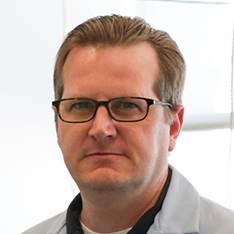
Professor
Civil and Environmental Engineering
Colorado School of Mines
Title: Precursors in Drinking Water? The Potential Role of Perfluoroalkyl Acid Precursors at AFFF-impacted Sites
Summary: This talk will examine the relative importance of various types of precursors to perfluoroalkyl acids at sites impacted by aqueous film forming foam (AFFF). Approaches to identifying these precursors, examining their fate in natural and engineering systems, and the potential role they play in human exposure to perfluoroalkyl acids will be discussed.
Bio: Dr. Higgins is an Professor in the Civil and Environmental Engineering Department at Colorado School of Mines. His research focuses on the fate, transport, and bioaccumulation of emerging contaminants in aquatic and terrestrial systems. Current projects are examining the potential for bioaccumulation of organic contaminants into foodcrops from reclaimed water, the bioaccumulation of organic contaminants from biosolids-amended soils, the fate of perfluorochemicals in groundwater and organic contaminants in wastewater treatment plants, and analytical method development for tracking inorganic nanoparticles in environmental and biological media.
October 25
Speaker: Megan Romano, PhD
Assistant Professor
Department of Epidemiology
Dartmouth Geisel School of Medicine
Title: Gestational Exposure to Highly Fluorinated Chemicals: Influences on Physical Growth, Thyroid Hormones, and Neurodevelopment
Summary: Dr. Romano’s research explores the influence of exposure to environmental endocrine disrupting chemicals (EDCs) during the sensitive windows of pregnancy and gestation on maternal and child health. She will present her recent research assessing the influence of perfluoroalkyl substances on early-life growth, maternal and infant hormones, and neurodevelopment in the Health Outcomes and Measures of the Environment and Maternal-Infant Research on Environmental Chemicals Studies.
Bio: Dr. Romano’s research explores the influence of exposure to environmental endocrine disrupting chemicals (EDCs) during the sensitive windows of pregnancy and gestation on pregnancy complications, maternal and infant hormones, breastfeeding, infant feeding behaviors, and early life growth. Her research is primarily focused on the effects of EDCs commonly found in consumer products in the United States, including bisphenol A, phthalates, perfluoroalkyl substances, parabens, and flame retardants.
November 1
Speaker: Thomas Webster, DSc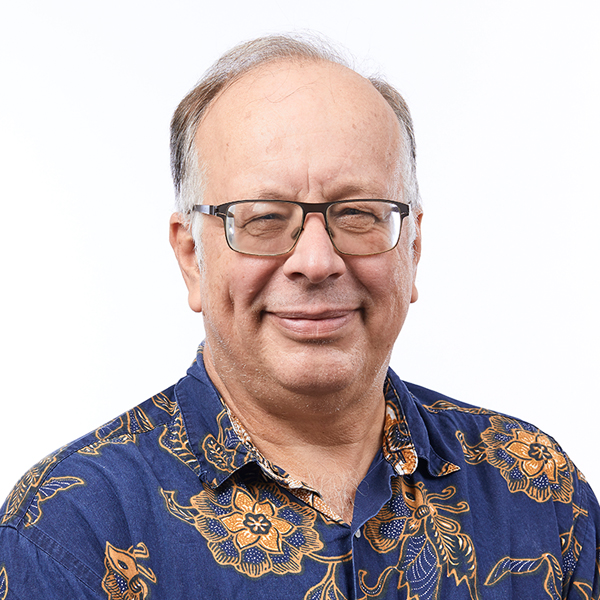
Professor
Department of Environmental Health
BUSPH
Title: PFAS Exposure and Health Effects
Summary:This seminar provides an overview of exposure and health effects of PFAS. Dr. Webster will also discuss the epidemiology that forms the basis of the 2018 European Food Safety Authority’s draft tolerable daily intakes for PFOS and PFOA, and the recent controversy at the August Society of Environmental Toxicology and Chemistry (SETAC) meeting.
Bio: Tom Webster has several main research areas: 1) exposure routes and health hazards of chemicals used in consumer products, especially flame retardants, plasticizers and emerging compounds, as well as perfluoralkyl compounds (PFCs) that are also found in water; 2) health impacts of exposure to mixtures of chemicals, with applications in toxicology and epidemiology; 3) endocrine disruption; 4) methodological aspects of environmental epidemiology, particularly causal inference, ecologic bias, the use of combinations of individual and group level data, and disease mapping and clusters. Like the rest of my department, I am very interested in the community context of environmental health. Dr. Webster served on the National Research Council’s Subcommittee on Fluoride in Drinking Water and the Institute of Medicine’s Committee on Making Best Use of the Agent Orange Exposure Reconstruction Model. The work of Dr. Webster and his colleagues and students has been featured in Environmental Health Perspectives (“PFCs and Cholesterol: A Sticky Connection,” “Unwelcome Guest: PBDEs in Indoor Dust”), Bostonia Magazine (“Trouble at Home,” “You Are What You Eat, Including Your Sofa”), Discovery News (“Handwashing Cuts Flame Retardant Exposure”) and the National Public Radio show “Living on Earth,” among other places.
November 8
Speaker: Wendy Heiger-Bernays, PhD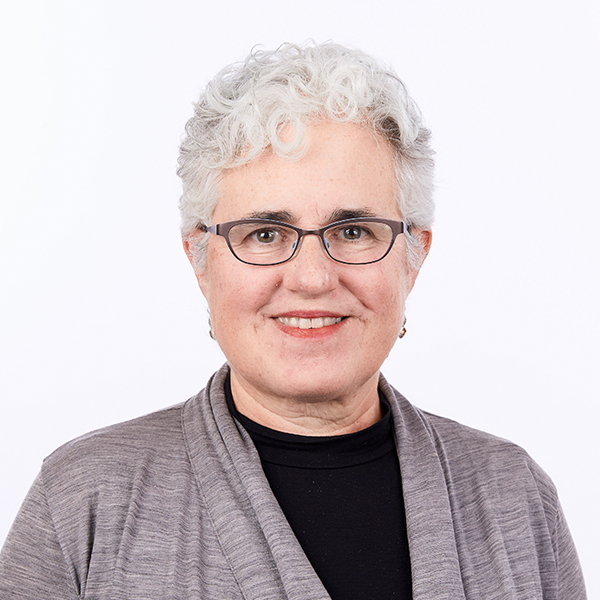
Clinical Professor
Department of Environmental Health
BUSPH
Title: Translating the Science: Status and Challenges of Risk-Based Decision Making for PFAS Chemicals
Summary: With the accumulating data on the fate and transport, exposures, toxicology and epidemiology of PFAS chemicals, the focus of this seminar is on the process of selection of the science used in risk-based decision making. To date the majority of efforts have been on development of drinking water guidelines and standards for up to six of the PFAS chemicals, efforts are underway to expand the process to soils and food. In this seminar, we will delve into the process of the risk-based decision making with a focus on the science, the progress that has been made, and the challenges ahead.
Bio: Wendy Heiger-Bernays is a faculty member in the Department of Environmental Health at the BU School of Public Health where she applies her training in molecular toxicology to practical questions about the impact of industrial chemicals, consumer products and pharmaceuticals in waste streams on people’s health. She works collaboratively to assess toxicity of chemicals that are able to modify the metabolic pathways in juvenile and prenatal fish and rodent models, to characterize and screen chemicals with endocrine activity in water, characterize health risks posed by vapors in homes that originate beneath the ground, and the development of practical interventions to commonly measured chemical hazards in agricultural soils. Dr. Heiger-Bernays is PI of the Research Translation Core (RTC) for the NIEHS-supported BU Superfund Program. Her work on the RTC is focused on technology and information transfer of the science to multiple audiences, including environmental regulatory and health agencies as well as with advocacy groups and community groups. Her research and teaching include a focus on effective ways to translate findings from the laboratory to multiple audiences. Heiger-Bernays’ overall objective is to engage communities in their understanding and mitigation of environmental health risks. She currently serves as a member of the Massachusetts DEP Waste Site Advisory Committee and the Science Advisory Board for the Toxics Use Reduction Institute and is chair of her local board of health. In 2015-2016, she was a AAAS Science and Technology Fellow hosted in the Office of Science Coordination and Policy at the US EPA, working in the Endocrine Disrupting Screening Program.
November 15
PhD Candidate
Department of Environmental Health
BUSPH
Title: Understanding the Direct and Indirect Pathways of Greenness on Health in Cities: Current State of the Literature and Future Research Directions
Summary:Exposure to nature and greenness is a rapidly expanding area of research that has both direct and indirect benefits to mortality and morbidity. However, there is still a need for public health researchers to provide more detailed information on the potential health benefits and co-benefits from increasing green infrastructure. This seminar examines the current state of the literature identifying potential direct and indirect pathways by which greenness is believed to be associated with health, as well as possible future research directions focusing on improving our understanding of the relationship between greenness, mental health, stress and wellbeing at both an individual and community level.
and
PhD Candidate
Department of Environmental Health
BUSPH
Title: Exploring the Endocrine Disrupting Effects of Perfluoroalkyl Substances on Metabolic Function in Mothers and Children
Summary: This seminar will review the current gaps in the literature on perfluoroalkyl substances (PFAS) and metabolic disruption, and provide a proposal to fill them. PFAS are a group of persistent chemicals that bioaccumulate, concentrating in the liver, kidneys and blood, with an affinity for albumin in blood plasma. Major sources of PFAS include aqueous firefighting foams, wastewater treatment plants and consumer products. This presentation provides the overview for a dissertation proposal to evaluate PFAS in consumer products using meta-analysis, while exploring their endocrine disrupting properties and effects on metabolic disruption. While several studies have assessed prenatal PFAS exposure and child obesity, few have explored this relationship in early childhood. Previous literature has evaluated the effect of PFAS on maternal thyroid function, but there is more to discover regarding the effects of hemodynamics during pregnancy on this relationship.
November 22
Speaker: Scott Burchiel, PhD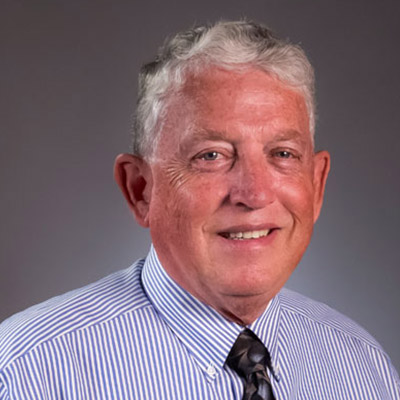
Distinguished Emeritus Professor and Working Retiree
University of New Mexico College of Pharmacy and Metals Superfund Center
Title: Assessment of Immunotoxicity following PAH and Arsenic Exposures in Human Cohorts: Complexities of Exposures and Outcomes
Summary: This seminar will focus on understanding potential mechanisms of immunotoxicity produced by arsenic exposure in mice and humans. The role of As+3 and MMA+3 (a significant and important metabolite) in triggering genotoxic (DNA damage and repair) and non-genotoxic (cell signaling) pathways will be discussed. Results from human peripheral blood mononuclear cell (PBMC) immunotoxicity studies in Bangladesh will also be presented. The seminar will highlight the use of flow cytometry for examining T cell development and function in mice and humans.
Bio: Dr. Burchiel is the former director of the UNM NIEHS Core Center, the UNM-UTEP ARCH Center, DeSantis Chair of Pharmacogenomics, and the Senior Associate Dean at the UNM College of Pharmacy. He was named UNM Distinguished Professor in 2014 and Part-Time Distinguished Emeritus Professor in 2017. He is the immediate past Editor-In-Chief of Toxicology and Applied Pharmacology. He is the PI of Project 4 (BP2): “Mechanisms of Immune Dysregulation Produced by Uranium, Arsenic, and Metal Mixtures” for the UNM Metals SRP Center.
Having worked in collaboration with the Los Alamos National Lab during his post doc, Dr. Burchiel is one of the pioneers in the use of flow cytometry for immunotoxicity studies. His laboratory is also active in the use of toxicogenomics and pharmacogenomics for the evaluation of gene-environment interactions and mechanisms of action of xenobiotics. His studies examine the effects of environmental agents on genotoxic (DNA damage and repair) and non-genotoxic pathways, including signal transduction pathways in lymphocytes and human breast epithelial cells. Current studies are applying genomic and epigenetic technologies to evaluate differences in responses of individuals to environmental exposures. He is also developing new technologies to assess the interactions between the human immune system and the upper airway and gut microbiomes.
November 29
Fall Break – NO SEMINAR
December 6
PhD Candidate
Department of Environmental Health
BUSPH
Title: Is Downstream Treatment Enough? Exploring Potential Exposure to Combined Sewer Discharge in the Merrimack River
Summary: While the history of drinking water quality in the United States represents an overall success story for public health in the last century, outdated infrastructure remains a potential pathway for human exposure to pathogens. Combined sewer overflows (CSO) introduce intermittent surges of raw sewage and untreated stormwater to surface water bodies that can be drinking water sources or recreational destinations. Replacement of combined sewers is often prohibitively expensive, although CSO communities are required to reduce CSO events. Communities that draw drinking water from CSO-impaired surface water bodies rely on treatment to ensure their safety. The Merrimack River is both a receiving water body for CSO discharge and a drinking water source where a recent study suggests that drinking water treatment may not be entirely protective of human health. This seminar examines the existing literature linking CSOs to adverse health outcomes and proposes dissertation research in the Merrimack River region that will explore the association between CSO events and illness; quantify risk to drinking water communities and recreators; and assess the potential for green stormwater infrastructure to minimize CSO events.
and
PhD Candidate
Department of Environmental Health
BUSPH
December 13
Postdoctoral Research Associate
Department of Environmental Health, BUSPH
Title: Community Noise Lab: Progress Report
Summary: For the past year, Community Noise Lab has been working with 8 communities across the East Coast to address their specific sound and noise issues, which range from live concerts to aircraft noise. We have supported these communities using real-time sound monitoring, our smartphone app, NoiseScore, our National Neighborhood Noise Survey, and a variety of community engagement activities. In today’s talk, we will highlight our current progress and detail next steps.

